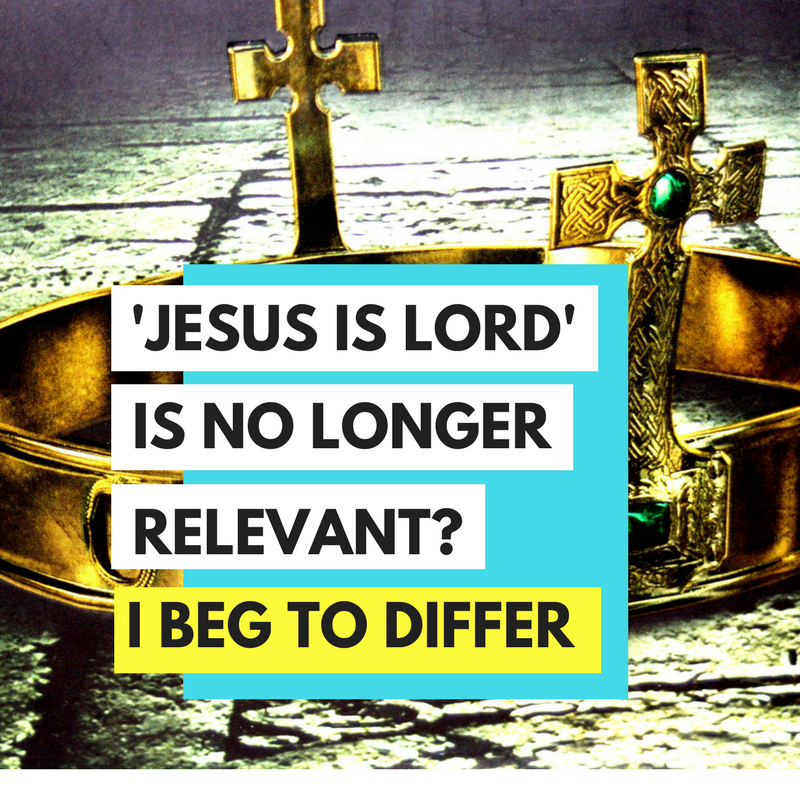In recent times I’ve had reason to think about the phrase ‘Jesus is Lord’, one of the earliest and the shortest of Christian creedal confessions. I well remember the wrestling match that went on before I finally got to the point of making this confession and seeking baptism as a young adult. The struggle to that point had been intensely personal. At the time, only very close friends were aware that God was bothering me. Many of them held the view that I was experiencing some sort of psychological malfunction and that I would, with appropriate help and support, be able to ‘get over it’ in time. This struggle took years — it’s not a trivial decision to make about the whole of your life, and I had had my own plans.
In baptism, what began as a personal conviction became a public confession. I became one of those people who commit themselves to seeing and responding to the world from a different perspective and trying to live the ‘Jesus is Lord’ story. This is what church is — the community of people corporately committed to living the ‘Jesus is Lord’ story. Part of my recent reflections on this were provoked by a throwaway comment to the effect that, in a post-Christendom era, the confession ‘Jesus is Lord’ is no longer current or relevant because we have achieved a higher degree of theological or confessional sophistication. I beg to differ.
Different denominations give different emphases in the way they choose to live and tell the ‘Jesus is Lord’ story. The Basis of Union expresses it in the following language: ‘The Church as the fellowship of the Holy Spirit confesses Jesus as Lord over its own life; it also confesses that Jesus is Head over all things, the beginning of a new creation, of a new humanity…’ It also claims that God has called the Uniting Church into existence to participate in the reconciling work of Christ, to be a fellowship of reconciliation through which Christ may work and witness. (Yes, I know I do go on about this but it is our core business and it requires constant attention and commitment. And yes, I also do know that nothing about it is comfortable or easy but such is my experience of ‘Jesus is Lord’.)
Forty years on in the life of the pilgrim people is a good time to take stock, do a bit of strategic housekeeping and prepare for the next part of the pilgrim journey. There are layers to this work:
Revisit the baptism questions which are about repentance, turning to Christ and making a public commitment to being in the world in relationship with God. It’s old fashioned and unfamiliar language, but would you make the same promises now that you made when you were baptised, or that were made on your behalf? For the ordained, do you confess anew Jesus Christ as Lord?
Review your discipleship work. In what ways do you assist the Church to be a fellowship of reconciliation through which Christ may work and witness? Where do you see Christ leading the church to feed the hungry, clothe the naked and bind up the variously broken-hearted?
What is the role and responsibility of the UCA denomination in contemporary Australia, in company with other denominations and faith traditions? How does the church offer a prophetic word in an increasingly polarised, post-truth world and give shape to God’s promise of a new creation and a new humanity?
The whole of church starts from the whole of life ‘Jesus is Lord’ confession, moving from the first moment of repentance that recognises that it’s really not ‘all about me’ — and unfolding in the Jesus way of being in and for the world.
Rev. Jane Fry is Acting General Secretary of the UCA Synod of NSW/ACT















